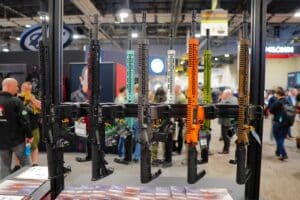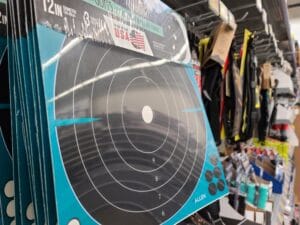One of the weakest legal theories in the post-Bruen era has popped up once again in federal court. This time, a federal appeals panel explained why it doesn’t work.
On Tuesday, a three-judge panel of the Fourth Circuit found Maryland’s pistol purchase permit is unconstitutional. The majority ruled that the gun sales restriction failed the test established in New York State Rifle and Pistol Association v. Bruen because it didn’t fit with the tradition of gun regulation dating back to the Founding Era. Therefore, it decided the law violates the Second Amendment.
As part of that decision, the majority exercised what I’ve labeled the “one weird trick that plaintiffs hate” theory of Bruen.
Just a week earlier, a different federal court handed down a decision that exemplified the theory. In Rocky Mountain Gun Owners v. Polis, US District Judge John L. Kane upheld Colorado’s three-day waiting period for gun purchases. He argued that gun sales simply weren’t protected by the Second Amendment at all.
“After examining the language of the Second Amendment using the Supreme Court’s analysis in Heller, I find, for the purposes of Plaintiffs’ Motion, that the plain text does not cover the waiting period required by the Act,” Judge Kane wrote. “This conclusion is bolstered by the fact that the Act is a regulation on the commercial sale of firearms and thus is presumptively permissible.”
He went on to say the “plain text” of the Second Amendment doesn’t cover “the receipt of a paid-for firearm without delay.” He argued the right to “keep and bear arms” doesn’t implicate a right to buy or sell them.
“Still, Plaintiffs attempt to equate the words ‘obtain’ and ‘possess.’ But these terms are not equivalent,” Judge Kane wrote. “To ‘keep,’ under the definitions provided in Heller, meant to retain an object one already possessed. It did not mean to receive a newly paid-for item, and it certainly did not mean to receive that item without delay. Likewise, ‘hav[ing] weapons’ indicates the weapons are already in one’s possession, not that one is receiving them.”
In October of last year, US District Judge George H. Wu employed the same reasoning in denying a preliminary injunction against California’s ban on possessing unserialized homemade guns. In that case, he argued the right to “keep and bear” didn’t cover the right to make or build guns.
“Though it leads with a recognition of the primacy of Bruen’s ‘plain text’ point, [the plaintiff] seeks in its opening brief to jump ahead in the analysis to a historical/tradition assessment (and to jump ahead in Bruen to that decision’s discussion of how to conduct such an assessment),” he wrote in Defense Distributed v. Bonta. “But it has effectively attempted to avoid the necessary threshold consideration – does the ‘Second Amendment’s plain text’ cover the issue here? No, it plainly does not. AB 1621 has nothing to do with ‘keep[ing]’ or ‘bear[ing]’ arms.”
This week, Judge Julius N. Richardson addressed this argument head-on in Maryland Shall Issue v. Moore.
“[Y]ou might note that the Amendment’s text protects only the right to ‘keep and bear’ arms. But, on its face, the challenged law says nothing about whether Plaintiffs may ‘keep’ or ‘bear’ handguns. It only restricts Plaintiffs’ ability to ‘purchase, rent, or receive’ them,” he wrote for the majority. “How, then, does the law regulate the right to keep and bear arms?”
He argued the answer is “not complicated.”
“If you do not already own a handgun, then the only way to ‘keep’ or ‘bear’ one is to get one, either through sale, rental, or gift,” Judge Richardson wrote. “And the challenged law cuts off all three avenues—at least, for those who do not comply with its terms.”
It’s entirely possible the Supreme Court will identify some difference between protections for gun sales or manufacturing compared with ownership or carrying. Eric Ruben, a law professor at Southern Methodist University who has written extensively on Second Amendment litigation, explained what that might look like.
“I could imagine a sliding scale, like the more regulated conduct is textually covered, the higher the govt’s burden to put forward a regulatory tradition,” he tweeted last year.
But the idea the Second Amendment protects owning and carrying guns but not building, selling, buying, or even shooting them is unlikely to stand outside of the courts least favorable towards gun rights. Indeed, other federal courts have repeatedly rejected the concept. US District Court Judge Maryellen Noreika blocked a Deleware “ghost gun” ban last year.
“These statutes burden constitutionally protected conduct because possession of firearms and firearm frames and receivers is within the scope of the Second Amendment’s right to ‘keep and bear Arms’ and Defendant has not shown that these firearms and components are not commonly owned by law-abiding citizens for lawful purposes,” Judge Noreika wrote in her opinion. “Further, Defendant has offered no evidence that these statutes are consistent with the nation’s history of firearm regulation.”
Even before Bruen, federal judges in Illinois and Pennsylvania ruled the Second Amendment protects shooting guns at ranges.
“The two zoning regulations—the manufacturing-district classification and the distancing rule—dramatically limit the ability to site a shooting range within city limits,” the Seventh Circuit Court of Appeals ruled in 2017’s Ezell v. City of Chicago. “Under the combined effect of these two regulations, only 2.2% of the city’s total acreage is even theoretically available, and the commercial viability of any of these parcels is questionable—so much so that no shooting range yet exists. This severely limits Chicagoans’ Second Amendment right to maintain proficiency in firearm use via target practice at a range.”
The “one weird trick” theory’s end run around Bruen’s historical test is unlikely to stand up if it ever makes it up for Supreme Court review. Even Judge Kane seemed to understand this point. After finding the Second Amendment’s text doesn’t protect gun sales, he defaulted back to a historical test anyway–with the same result, of course.
The best chance this line of reasoning has of surviving is if it never makes it outside the most liberal federal courts in the country. With the Supreme Court granting more gun cases than ever, that seems unlikely.






